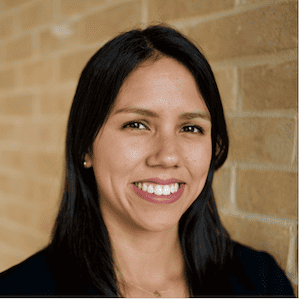-
Don’t Underestimate Gen Z: How Youth-Led Solutions are Shaping the Future of Social Entrepreneurship
Generation Z is often labeled as distracted, anxious, lonely or under-skilled. But as George Tsiatis at the Resolution Project and Enactus Global argues, these stereotypes are unfair, and members of Gen Z often possess a unique perspective and determination that enable them to tackle complex social challenges with unprecedented ingenuity and purpose. He shares four areas where young social entrepreneurs are driving innovation and achieving measurable impact, highlighting several youth-led enterprises that are demonstrating the next generation’s approach to leveraging business for social change.
- Categories
- Agriculture, Energy, Environment, Social Enterprise, Technology
-
The Emergence of Tokenisation in Microfinance: How this Blockchain-Based Technology is Driving Faster Access to Capital for Entrepreneurs In Emerging Markets
Tokenisation — the process of leveraging blockchain to create digital tokens that represent real-world assets — is gaining significant momentum, with some estimating that it could become a $3.8 trillion market by 2030. According to Michele Mattioda at Mikro Kapital, the microfinance industry — and the small and medium enterprises it supports — have a lot to gain from the tokenisation wave. He explores how tokenisation is gradually making inroads into the sector, and discusses Mikro Kapital's experience launching the market’s first tokenised bonds to raise proceeds for microfinance institutions.
- Categories
- Finance, Investing, Technology
-
Why Insurance Matters: Announcing the European Microfinance Award 2025 on ‘Building Resilience Through Inclusive Insurance’
Insurance is a hard sell, especially among low-income populations. Yet as Sam Mendelson at e-MFP, and Matthew Genazzini and Asier Achutegui at the Microinsurance Network argue, affordable and tailored insurance products are essential to ensuring economic security and resilience in vulnerable communities. They explore the challenges and opportunities in offering insurance products to low-income customers, and announce the launch of the European Microfinance Award 2025, which will focus on “Building Resilience Through Inclusive Insurance.”
- Categories
- Finance
-
New Platforms, New Voices: NextBillion’s Evolving Social Media Strategy
In recent weeks, NextBillion has begun to shift our social media strategy. Our goal in making these changes is to bring our content to the attention of more entrepreneurs, investors, researchers and others, while promoting more open engagement with other thought leaders and organizations. Under this new approach, we’ll strive to maintain a balance between sharing our own content, and highlighting posts and discussions from other voices across the sectors we cover. This article briefly summarizes the site's evolving strategy.
- Categories
- Telecommunications
-
Innovating in Impact Measurement: A Tech-Driven Platform Aims to Simplify Data Collection and Reporting
Studies indicate that around 65% of social enterprises engage in some form of social impact measurement. However, as Hana Stelzerova at Impactso points out, the depth and rigor of these measurements can vary significantly, and many organizations and initiatives struggle to implement more thorough and standardized evaluation methods. She discusses the challenges of measuring impact, and explores how innovative technologies can be leveraged to revolutionize the process for organizations across the sector.
- Categories
- Social Enterprise, Technology
-
Revitalizing Off-Grid Solar: Why Africa’s PAYGo Sector is Ready for a New Dawn
Africa's off-grid solar sector, particularly pay-as-you-go (PAYGo) solar, has passed through a period of disillusionment among investors, as profitability has remained elusive. But as Chris Emmott at Acumen, Audrey Desiderato at Mirova and Bankole Cardoso at Delta40 Venture Studio argue, the sector nevertheless stands on the cusp of becoming a mature industry with real and sustainable impact. They explain why they remain optimistic about the future of PAYGo solar as impact investors, and why it's time for honest conversations and compromise from all stakeholders — including companies and their investors — about how the industry can move into the next stage of its development.
- Categories
- Energy, Environment, Finance, Investing, Technology
-
Gender Incentives in Climate Finance: Doubling Down on Proven Approaches During Uncertain Times
With the endpoint of the SDGs just five years away, multiple factors have combined to undercut gender and climate-focused funding in several key global economies. Edward T. Jackson, Yiagadeesen Samy and Katie Turner argue that gender incentives in climate finance offer an effective solution to this dual challenge. They explore how these incentives can boost the supply of affordable, renewable energy, while improving wages and economic autonomy for women workers — and they argue that if there were ever a time to double down on this approach, it is now.
- Categories
- Energy, Environment, Investing
-
Navigating the Crisis in Global Development: Job Boards, Career and Entrepreneurship Guidance and Other Resources
Drastic cuts at USAID and other key funders have sparked turmoil in the global development and social impact sectors. But they have also generated a large and growing response from individuals and organizations, who are working hard to ramp up their own funding and other programs, help newly unemployed workers find new jobs and careers, and provide other forms of support to those affected by the crisis. NextBillion has created this page to aggregate as many of these resources and opportunities as possible. We will continue to update it regularly with new links as the response to this crisis progresses.
- Categories
- Energy, Environment, Social Enterprise, Technology










